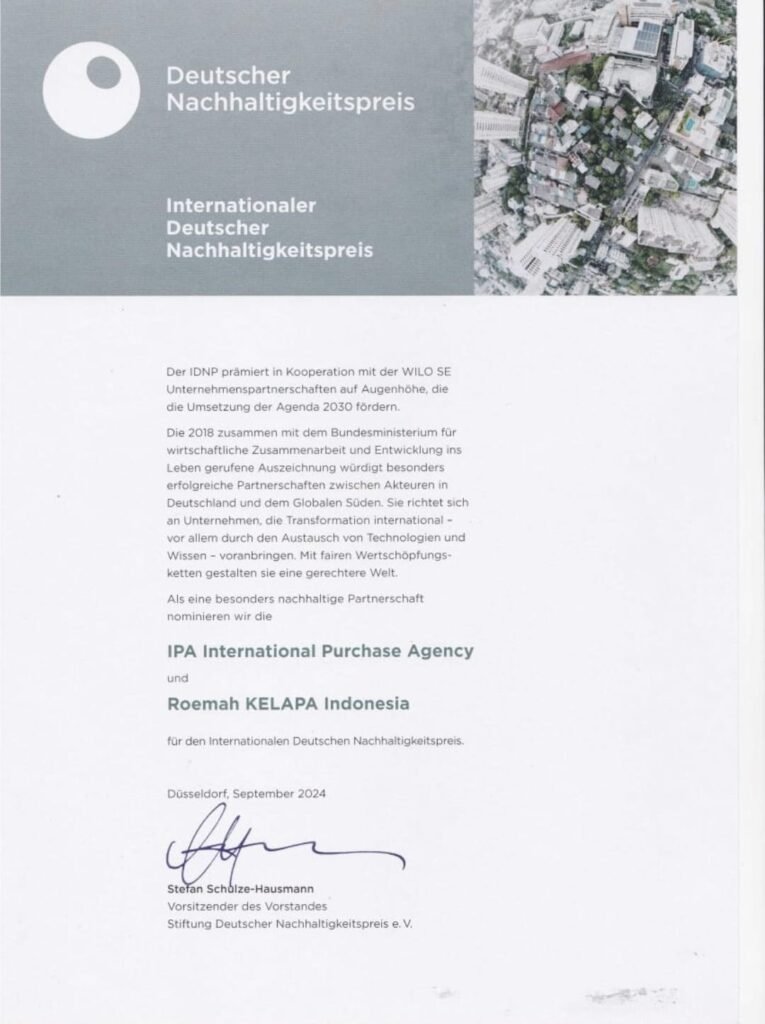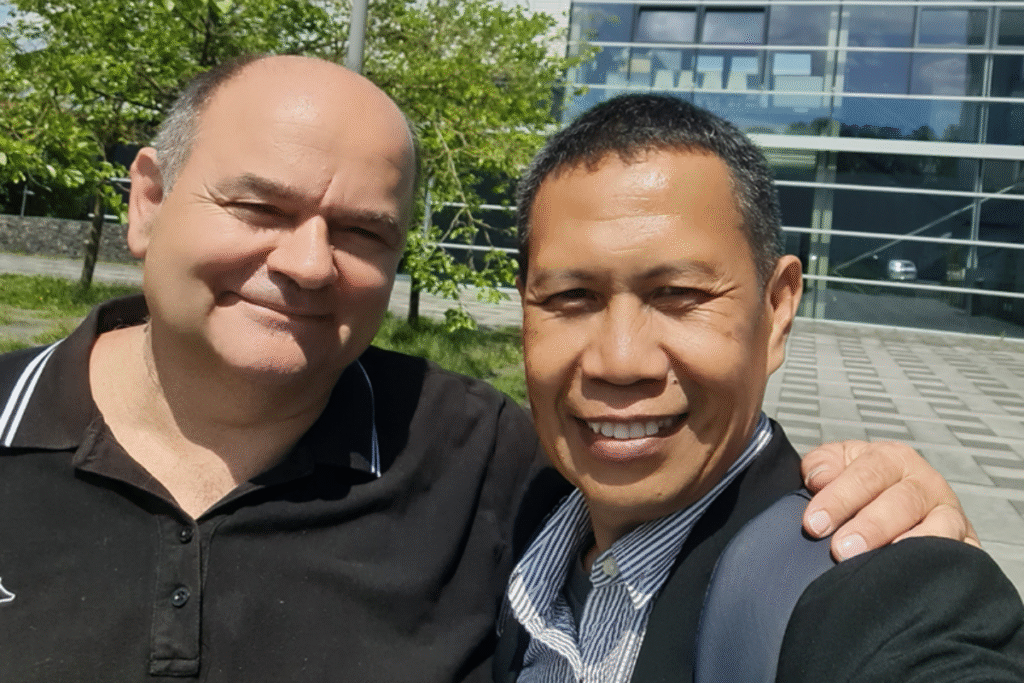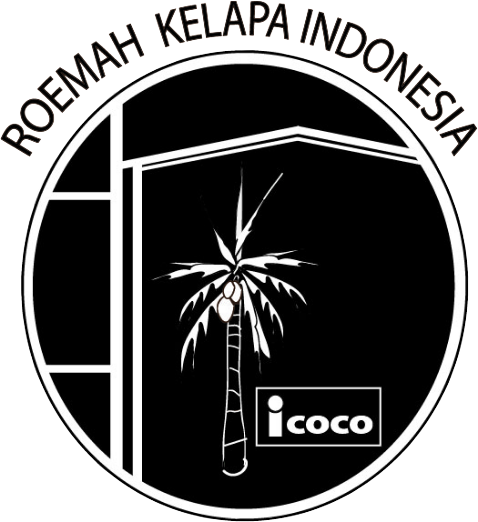
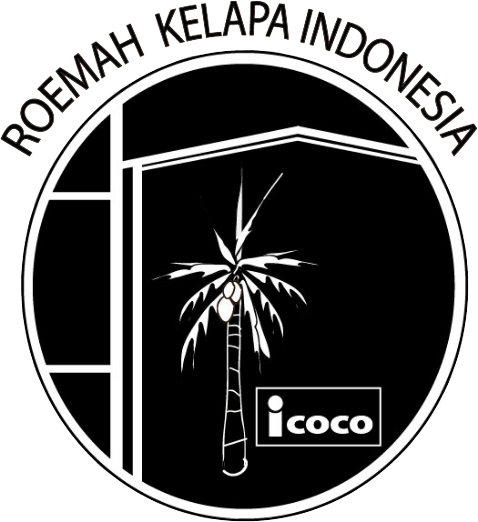
Roemah Kelapa Indonesia Group




CO-OPERATION WITH INDUSTRIALS
CO-OPERATION WITH INDUSTRIALS
GREEN TECH, BAYERN - GERMANY
GREEN TECH, BAYERN - GERMANY

The Memorandum of Understanding (MoU) signed between Roemah Kelapa Indonesia (RoeKI) and this German company carries significant importance in the global effort to reduce CO₂ emissions and advance sustainable industrial practices.
Through this partnership, both parties are committed to:
Developing high-impact solutions to capture and reduce carbon emissions.
Utilizing coconut shells (batok kelapa) as a renewable raw material for producing premium-quality activated carbon, a product with wide applications in environmental technologies, health industries, and high-value filtration systems.
Promoting circular economy models, where agricultural by-products are transformed into eco-friendly, high-value commodities.
This collaboration not only strengthens RoeKI’s role in Indonesia’s coconut downstream industry, but also positions the organization as a key partner in global climate action, combining German technological innovation with Indonesia’s abundant natural resources.
The long-term impact of this MoU is expected to create new opportunities for farmers, generate green industries, and inspire young entrepreneurs to see coconut waste not as a burden, but as a pathway to sustainability, innovation, and international trade.
Building Global Partnerships for Sustainable Innovation
Roemah Kelapa Indonesia (RoeKI) has established an important dialogue with BMW Group, facilitated by Dr. Frank, focusing on a sustainability-driven program to stop the burning of coconut husks in Indonesia. This initiative is crucial, as open burning not only causes severe environmental damage but also results in the loss of valuable biomass resources.
RoeKI is exploring the transformation of coconut husks into high-performance natural fiber composites, particularly for use in automotive interior parts such as dashboards. This kind of innovation hope marks a breakthrough opportunity to integrate Indonesian coconut-based materials into the global automotive supply chain, reinforcing the role of coconut as a sustainable industrial resource.
In parallel, RoeKI—through connections facilitated by Sara Mazzuoli (a student from Lund University, Sweden) — has also been introduced Pattinson an international designer and model who is actively seeking alternative materials from natural fibers for fashion and lifestyle innovation. Their strong interest in coconut coir fiber applications opens up new avenues for cross-industry collaborations, from automotive to design and consumer goods.
This dual pathway— may linking automotive giants like BMW with creative industries and global influencers—demonstrates RoeKI’s strategic capacity to position Indonesian coconut by products as a sustainable, high-value material for the future of global innovation.
By transforming coconut husks into high-performance natural fiber materials for automotive parts, we are not only reducing CO₂ emissions and stopping wasteful burning in Indonesia, but also proving that sustainable innovation can drive both industry excellence and environmental responsibility.

The Memorandum of Understanding (MoU) signed between Roemah Kelapa Indonesia (RoeKI) and this German company carries significant importance in the global effort to reduce CO₂ emissions and advance sustainable industrial practices.
Through this partnership, both parties are committed to:
Developing high-impact solutions to capture and reduce carbon emissions.
Utilizing coconut shells (batok kelapa) as a renewable raw material for producing premium-quality activated carbon, a product with wide applications in environmental technologies, health industries, and high-value filtration systems.
Promoting circular economy models, where agricultural by-products are transformed into eco-friendly, high-value commodities.
This collaboration not only strengthens RoeKI’s role in Indonesia’s coconut downstream industry, but also positions the organization as a key partner in global climate action, combining German technological innovation with Indonesia’s abundant natural resources.
The long-term impact of this MoU is expected to create new opportunities for farmers, generate green industries, and inspire young entrepreneurs to see coconut waste not as a burden, but as a pathway to sustainability, innovation, and international trade.
Building Global Partnerships for Sustainable Innovation
Roemah Kelapa Indonesia (RoeKI) has established an important dialogue with BMW Group, facilitated by Dr. Frank, focusing on a sustainability-driven program to stop the burning of coconut husks in Indonesia. This initiative is crucial, as open burning not only causes severe environmental damage but also results in the loss of valuable biomass resources.
RoeKI is exploring the transformation of coconut husks into high-performance natural fiber composites, particularly for use in automotive interior parts such as dashboards. This kind of innovation hope marks a breakthrough opportunity to integrate Indonesian coconut-based materials into the global automotive supply chain, reinforcing the role of coconut as a sustainable industrial resource.
In parallel, RoeKI—through connections facilitated by Sara Mazzuoli (a student from Lund University, Sweden) — has also been introduced Pattinson an international designer and model who is actively seeking alternative materials from natural fibers for fashion and lifestyle innovation. Their strong interest in coconut coir fiber applications opens up new avenues for cross-industry collaborations, from automotive to design and consumer goods.
This dual pathway— may linking automotive giants like BMW with creative industries and global influencers—demonstrates RoeKI’s strategic capacity to position Indonesian coconut by products as a sustainable, high-value material for the future of global innovation.
By transforming coconut husks into high-performance natural fiber materials for automotive parts, we are not only reducing CO₂ emissions and stopping wasteful burning in Indonesia, but also proving that sustainable innovation can drive both industry excellence and environmental responsibility.

Launching of
BMW i8
Where Green Innovation Meets Luxury Coconut Husk for a Better Tomorrow
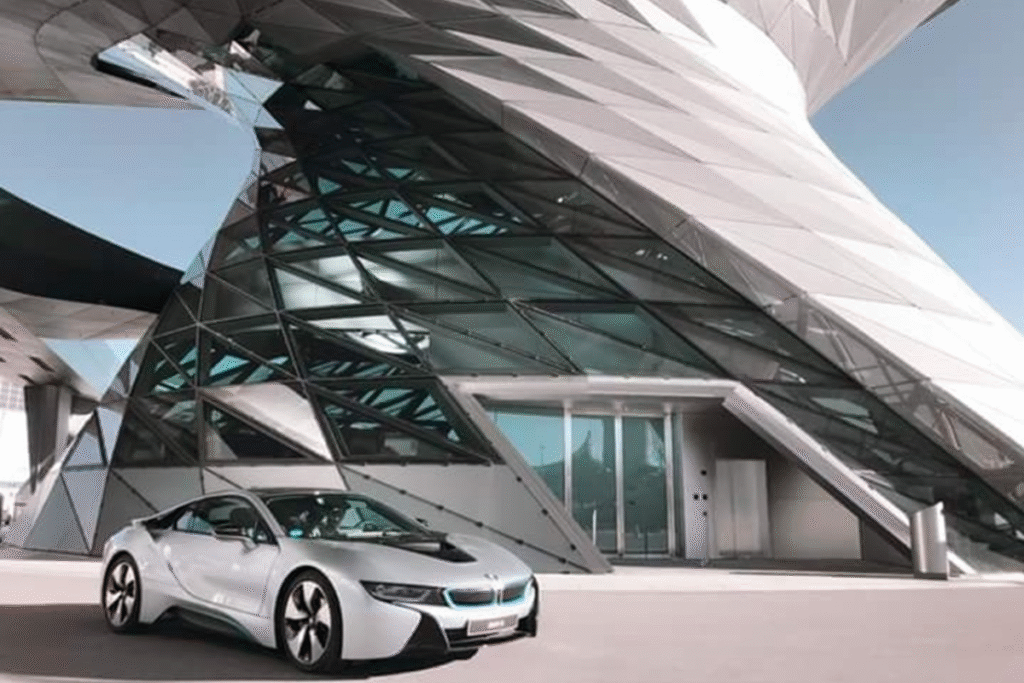
The BMW i8 represents the harmony of innovation and sustainability.
The future of coconut husk — once seen as waste — is transformed into green solutions that care for our planet. RoeKI hope in reality a shows that true luxury is not only about performance, but also about responsibility for a better tomorrow
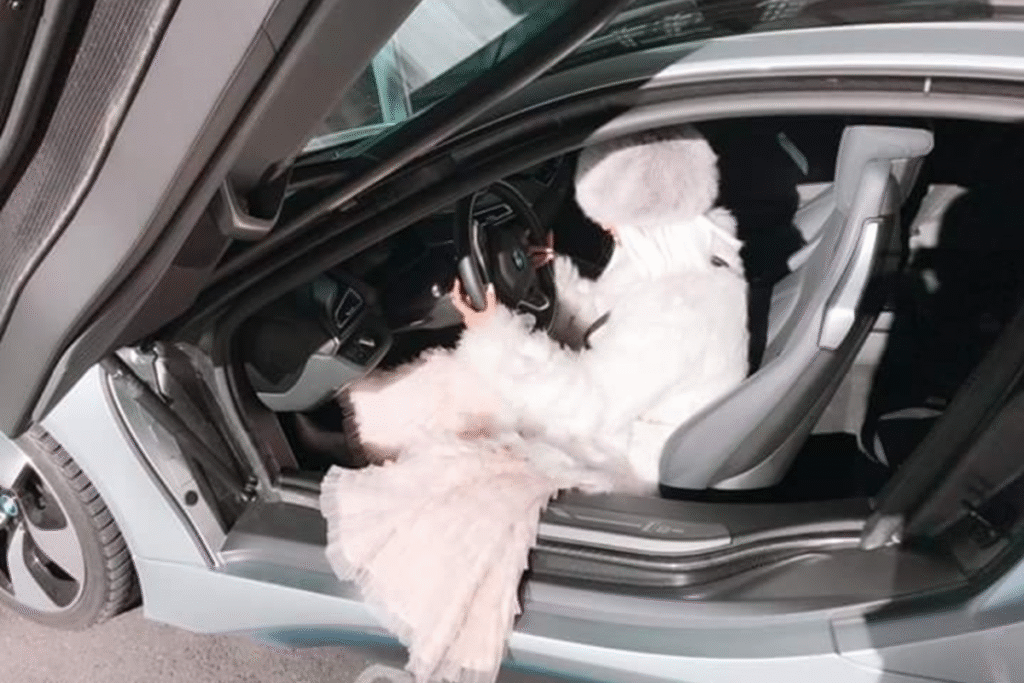
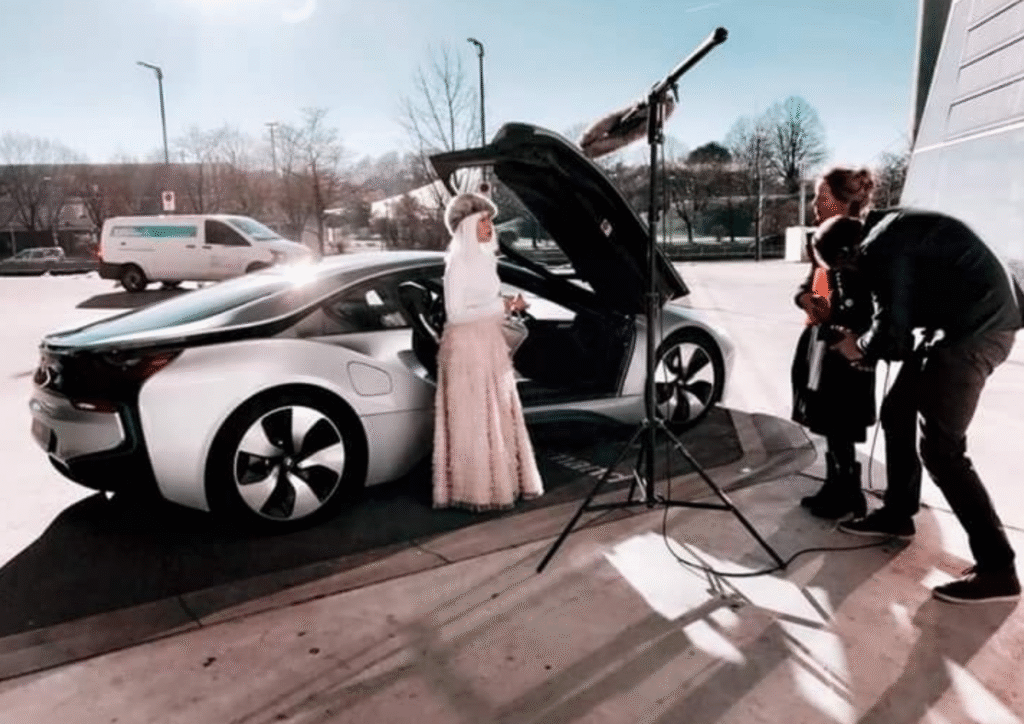

Launching of
BMW i8
Where Green Innovation Meets Luxury Coconut Husk for a Better Tomorrow

The BMW i8 represents the harmony of innovation and sustainability.
The future of coconut husk — once seen as waste — is transformed into green solutions that care for our planet. RoeKI hope in reality a shows that true luxury is not only about performance, but also about responsibility for a better tomorrow


INTERNATIONAL PURCHASING AGENCY - IPA PARTNESHIP WITH ROEKI
INTERNATIONAL PURCHASING AGENCY - IPA PARTNESHIP WITH ROEKI
